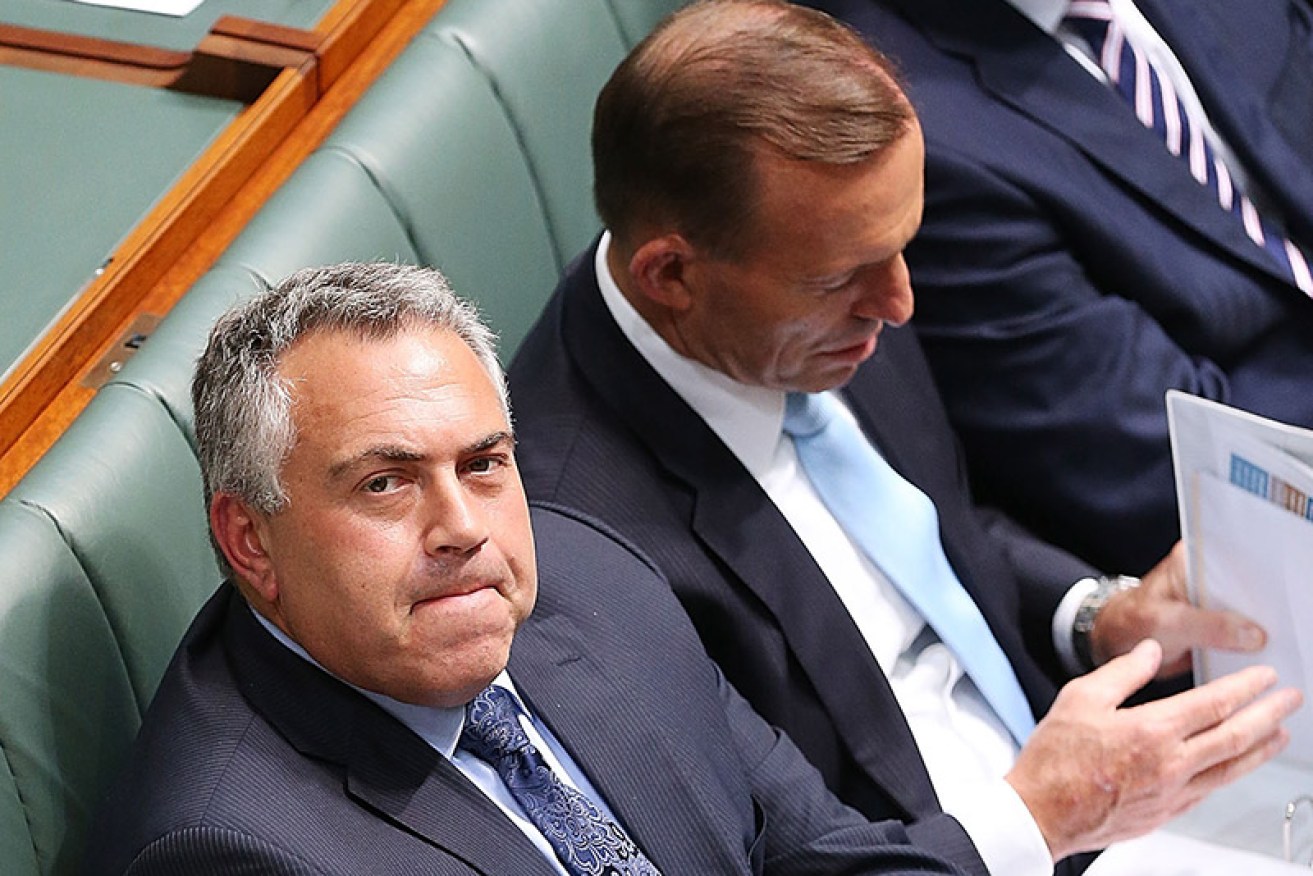Joe Hockey’s super ‘debate’ – why there’s no debate


Former Treasurer Peter Costello was choosing his words very carefully on Tuesday night when the ABC’s Leigh Sales asked him if dipping into super to fund first home buyer deposits was a good idea.
He replied:
The Howard government had a look at it. We decided – because we thought superannuation should be for retirement savings – we decided not to allow superannuation to be available for housing. This government’s going to look at it again: fair enough, things may have changed … “
He’s being charitable there, to say the least.
• Is there method in Hockey’s house price madness?
• Thoroughly bad idea: Turnbull defies Hockey
• Politicians, super industry at odds over house deposits
He might as well have said:
We looked at smoking and decided it was bad for your health. This government’s going to look at it again. Fair enough, things may have changed …
Mr Costello knows full well that Prime Minister Tony Abbott and Treasurer Joe Hockey have floated a stinker of an idea, but he is providing them with just enough rhetorical cover to allow them to “have the debate”.
But there is no debate to have. The fundamentals of super have not changed, and the principle on which compulsory super is founded – compounding interest – is basic arithmetic, not political opinion.
Australia’s super system was designed to shift the burden of funding retirement from the state pension system, back onto individuals.

Young people are locked out of the housing market. Will super let them in? Joe Hockey wants to talk about it.
The least painful way to do this is to ensure that even 20-somethings put part of their earnings into long-term investments which they cannot touch until the preservation age (currently 60 for people born after 1964, and 55 for anyone older than that).
A dollar put away when you’re 20, if it can earn a compounding real return of 3.5 per cent, say, will be worth $3.95 at 60, in constant dollars.
A dollar put away at the age of 30, assuming the same investment returns, would give you $2.80 at age 60.

For sale … but out of reach for many. Photo: AAP
So pulling a large chunk of money out early on can have a huge impact on an individual’s ability to self-fund their retirement – and hence their ability to avoid making a claim on the pension system, which is the purpose of super in the first place.
When the ABC’s Tony Jones put this to Mr Hockey on Wednesday, the Treasurer, without blushing, made the feeble defence that a home buyer might make more in capital gains on a house they bought in their youth than they would through their super.
He said: “You’ve also got the argument that they get capital gain and the capital gain may well be far greater than anything they get on their return in existing superannuation funds. So, you know – and no one’s taking a clip along the way if it’s their own home. So there are lots of arguments both ways.”
While Mr Hockey stopped short of backing any one position, he is creating a “debate” around investment fundamentals that cannot seriously be questioned.
Super funds, as it happens, also invest in property, but do so with dollars that have only been taxed at a concessional 15 per cent on the way into the fund, rather than at the marginal tax rate of the fund member – a massive tax advantage.
Moreover, super funds only take property positions to match a risk/return profile that they think will produce the best long-term return for the fund members.
For a typical balanced fund, that would include something like 30 per cent in local shares, around 20 per cent in international shares, 10 per cent in property, 10 per cent in infrastructure, 20 per cent in fixed-interest and 10 per cent in cash or a few other bits and bobs.
So if a fund manager – one of those people who is “taking a clip along the way” – advised a member to take nearly all the money they’d saved at 30 and put it into the single asset class known as ‘residential property’, they should, by rights, be sent to jail.
Residential property in Australia is in the midst of a speculative bubble, driven by older, wealthier property investors who are in some cases able to use self-managed super funds (SMSFs) as a tax-efficient way to outbid other property buyers.
Tax and super laws as they now stand have created such an imbalance in the type of buyers borrowing to purchase homes, that the Australian Prudential Regulatory Authority is finally threatening to clip mortgage lenders’ wings with stricter ‘macroprudential’ rules.
In January, 51 per cent of mortgage dollars lent went to investors, with owner occupiers now in the minority (in value terms) for the first time since 2003.
If one were to take seriously Mr Hockey’s call for a ‘debate’ around letting young Australians do the same with their meagre super balances, the debate could only be framed around “shall we give young investors the same tax breaks older investors currently enjoy?”
The answer must be a resounding ‘no’! There are many roads back to housing affordability, but allowing Australians young and old to pump prices yet higher with their super savings just isn’t one of them.








